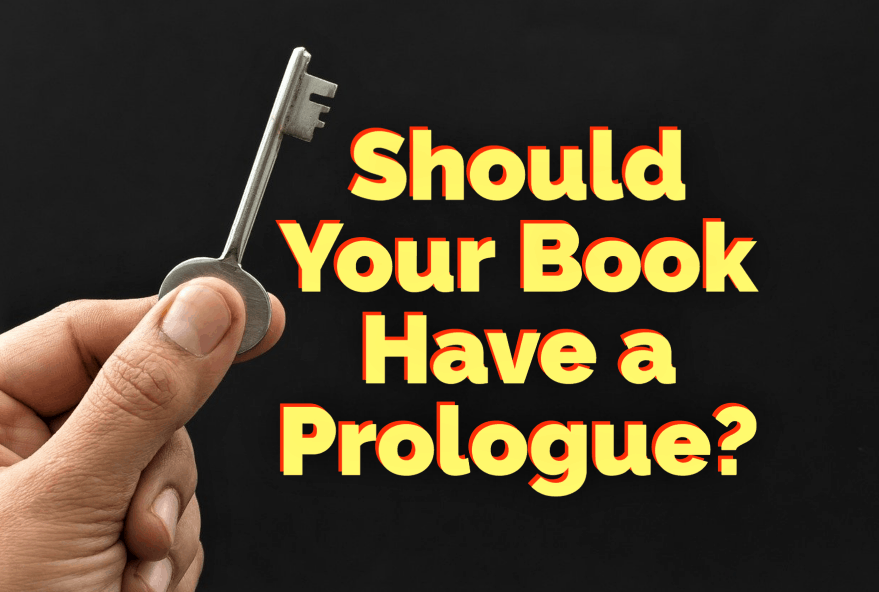I love prologues more than epilogues. No doubt that signifies something about my personality but keep your comments to yourself. Some people love prologues, others hate them, and authors might be shocked to discover that sometimes readers even skip them.
In writing circles, a bold question rings out: Are prologues even necessary? Why not avoid confusion and label this material Chapter One?
Is it just a formatting thing?
A prologue is material or info that is out of sequence or in a different perspective than the rest of the narrative, but that fiction writers want to include at their story’s start. And while its contents may be distinct, a prologue’s tone should match the rest of the book’s.
A prologue is a discrete launchpad for the plot.
The hook
Veterans of writing seminars may unduly obsess over the need to hook their reader on Page One, resulting in a great deal of labor expended to include a mega-exciting prologue at their novel’s start. While it’s absolutely true authors should hook their reader on Page One, they also need to hook their reader on Page Two as well as on the rest of the book’s pages (which explains why writing a novel is hard). You do not attract a reader with a fabulous start and coast from there
A prologue isn’t marketing for the book.
A prologue cannot be extraneous
If it’s little more than a colorful gewgaw to entice the reader, a prologue shouldn’t be there. It serves a more important narrative function. While it stands apart from the rest of the story, it must also be integral to or indicative of the literary journey the reader is about to embark upon.
A prologue should influence or propel the overall story.
Suspense builder
A prologue may provide information from a perspective not found elsewhere in the text. You can heighten suspense if the reader knows something the protagonist does not. This is why writers of crime fiction in particular love prologues.
Meet the protagonist
A prologue might reveal something totally intriguing about the protagonist’s past. It might drop hints or foreshadow something really exciting that will happen to the protagonist. Or it might feature a tantalizing scene with the protagonist from later in the story.
Don’t forget that a prologue is separated from the rest of a book for a reason. Before committing to any important character building at a book’s start, a writer must ask if it belongs there or in Chapter One or perhaps in a different part of the book.
Not too long
Similarly, world building may be integral to a book’s plot, but that’s not the function of a prologue. Its goal is to propel the plot forward rather than explain everything about the back story or the fictional set-up.
Don’t trap readers in an info dump.
A prologue should be no longer than the rest of the book’s chapters, and since these days the trend is for shorter chapters, a short prologue is recommended.
A prologue’s goal
Although prologues don’t belong in every book, they can be a wonderful resource for authors to further a book’s plot in a creative way. Misguided prologues may put off readers at a critical point, but a great prologue grabs them and plops them in a chair for the duration.
Onward!
The well-known quote “What’s past is prologue” is often interpreted to mean that we are doomed to repeat our mistakes. However, the full quotation from Shakespeare’s The Tempest is “Whereof what’s past is prologue; what to come, in yours and my discharge.” So the past may be written, but what comes next is up to you. Keep writing!
Are prologues necessary? Does your current WIP have one? Share your thoughts with us on Facebook.





